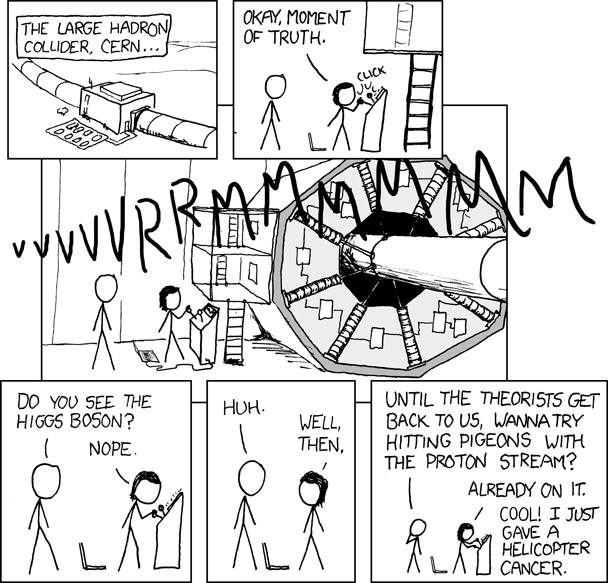Quoth the Comments Section:
Verily I must agree with my dear friend Anonymous here.
Anonymous said...
"First, have the guts to write under your own name."
It may be cute to adopt monikers but if you are out there on the web, put your name to what you write. Anonymous posts are the work of cowards.
I think you may misunderstand the meaning of the word
Anonymous.
MrCopilot is a name, a company, a family, a person, a domain name, a blog, a freelance writer, and they are all me. Go ahead search me, have at you, I wrote almost all that stuff. However, if you were to search for me by name, parsing through the results would take days, literally days. I represent an infinitesimal fraction of the data of my ancestors and the like named. Authors, Scientist, Fraudsters, Geniuses, Bigots, Lesbians, Actors, and all around a great bunch, just not me.
Spoiler Alert
My Last Name is not Copilot.
My name is not a secret. I bet it takes the average reader less than 30 minutes to find it.
Once you do though, do me a favor and Google it, try to find anything I wrote, there is some in there, no really somewhere in 313,000 results. My real name makes me anonymous.
Hence a new mark was required.
Meanwhile, you can be fairly certain that if it says MrCopilot, I wrote it and you can find it easily.
Now here comes the hard part. After all that, we have to cut to the the end this Anonymous post which is "signed" Sam Varghese, for a quick disclaimer: I have no way to tell if this was the "real" Same Varghese, but they have a similar tone. And hey at least it is a conversation, sort of. If these are not the words of Sam Varghese, I address them to Anonymous, my life long friend.
Ah, if no real point was made why are you getting all hot and bothered?
What point were you driving at? "Look at these greedy Americans trying to swindle the world with a useless product?" That seemed to be the implication, and I'm sorry I don't see it. I humble disagree.
My reference was to "any and all problems". There is a mountain of difference between that and the word "some". It's easy to construct a straw man and then deflect his argumente.
Yep,
One thing common to practically all these agencies is that they actually believe that Western technology can alleviate any and all problems in the Third World.
Except, some of them can be solved with technology. Are you saying we should not try to solve any? Or every application of technology is futile? Where is the point in that false statement?
Specifically the OLPC has a very narrow focus. They don't pretend to know what millions of children connected to vast libraries of knowledge can do with tomorrow, but they sure want to find out. They do know a few things. Like the weight and cost of books for these children.
Any actual good done, I suppose is irrelevant to your rant, I mean narrative.
Do you have any instances of this? If so, put up.
Of good done by non profit organizations, or the OLPC, or the impact the XO is having in the tiny laptop world? You put up. What is the danger? Theft I think you mentioned, I'll get back to that.
Why not let this guy sell a few governments educational devices for children. I certainly prefer it to arms. I certainly support the spread of literacy, computer literacy, and yes free software literacy to every child we can.
I am really not interested in what David Pogue does. I am interested in the chap I met who made a claim - and then refused to provide verifiable evidence of it. Period.
That is too bad, he does a fine job. For instance, when he writes about the XO laptop, he actually uses one or two. He tests them. He RESEARCHES the OLPC. But, that is not everybody's cup of tea, I understand.
No, as a journalist (a simple Google search would have given you sufficient detail but then facts would get in the way of your blog post, wouldn't they?) who has done the hard yards for close on 30 years in three countries. I was there for a job
I humbly apologize, your press pass yielding, paycheck cashing, fountain of journalism, sir. I make no assumptions of you journalistic ability or experience. Sorry if "Blogger" hurt your feelings. Did you ever write that Intel Presentation story?
If the village has ONE LAPTOP PER CHILD, who is going to steal them?
Is it only kids who live in villages? Have you ever been to a village?
Buddy, I practically live in a Hamlet.
Security and Theft have been well
thought out, discussed and appropriate measures can be taken in areas where it is necessary
for instance.
We are talking about spending money on supplying books which are expensive, heavy and easily damaged or an XO for a child. Which does more good? Which is more utilitarian? Which is a better investment? Better yet which is the child more likely to learn from?
You obviously have never interacted with children in a rural setting. I have.
And, I fail to see your point. Answer the Question.
There are some things which people in the West will never understand.

Yep, you got me, I don't understand what is wrong with these Mongolian kids learning on an education platform provided by their government or donations. Please enlighten us all.
It is easy to believe that OLPC is a selfish organization if you are unfamiliar with empathy and selfless acts of human decency. Shame on you sir.
No human act is unselfish - don't kid yourself.
I'll kid myself all I like, thank you. Your statement proves my point, you wouldn't recognize it if you saw it.
Make no mistake about it, all these guys are going to make a lot of cash.
Mary Lou probably first. Negroponte is well off enough. The programmers and management teams will have excellent careers once they leave OLPC. Deservedly so. The XO is an incredible piece of hardware, designed for a purpose with a vision. The commercialization of the technology making up the XO will be with us shortly. And in that sense there is money to be made. So they all aren't completely selfless. I bet the donors and volunteers feel pretty good about themselves too, those smug bastards.
OLPC is a commercial project
No, it isn't.
OLPC is not, at heart, a technology program, nor is the XO a product in any conventional sense of the word. OLPC is a non-profit organization providing a means to an end—an end that sees children in even the most remote regions of the globe being given the opportunity to tap into their own potential, to be exposed to a whole world of ideas, and to contribute to a more productive and saner world community.
http://laptop.org/en/vision/mission/index.shtml
They are not giving away the laptops free.
In essence that is exactly what they are doing. Someone has to pay for the parts. OLPC thinks that is probably best left to the education ministry of each country.
People in the West love to think of themselves as humanitarians - after their governments have raped countries in the East. While that happens, they keep quiet.
Sam Varghese
Raping Humanitarians, excellent band.
Seriously, hanging the OLPC for actions of the US and company is a little overboard, no?
MrCopilot
 For those of you who haven't. Its a monstrous 8 Billion dollar machine outside Geneva, constructed for the purpose of smashing tiny particles into each other at unbelievable levels of energy and speed to recreate conditions a trillionth of a second after the Big Bang.
For those of you who haven't. Its a monstrous 8 Billion dollar machine outside Geneva, constructed for the purpose of smashing tiny particles into each other at unbelievable levels of energy and speed to recreate conditions a trillionth of a second after the Big Bang.









